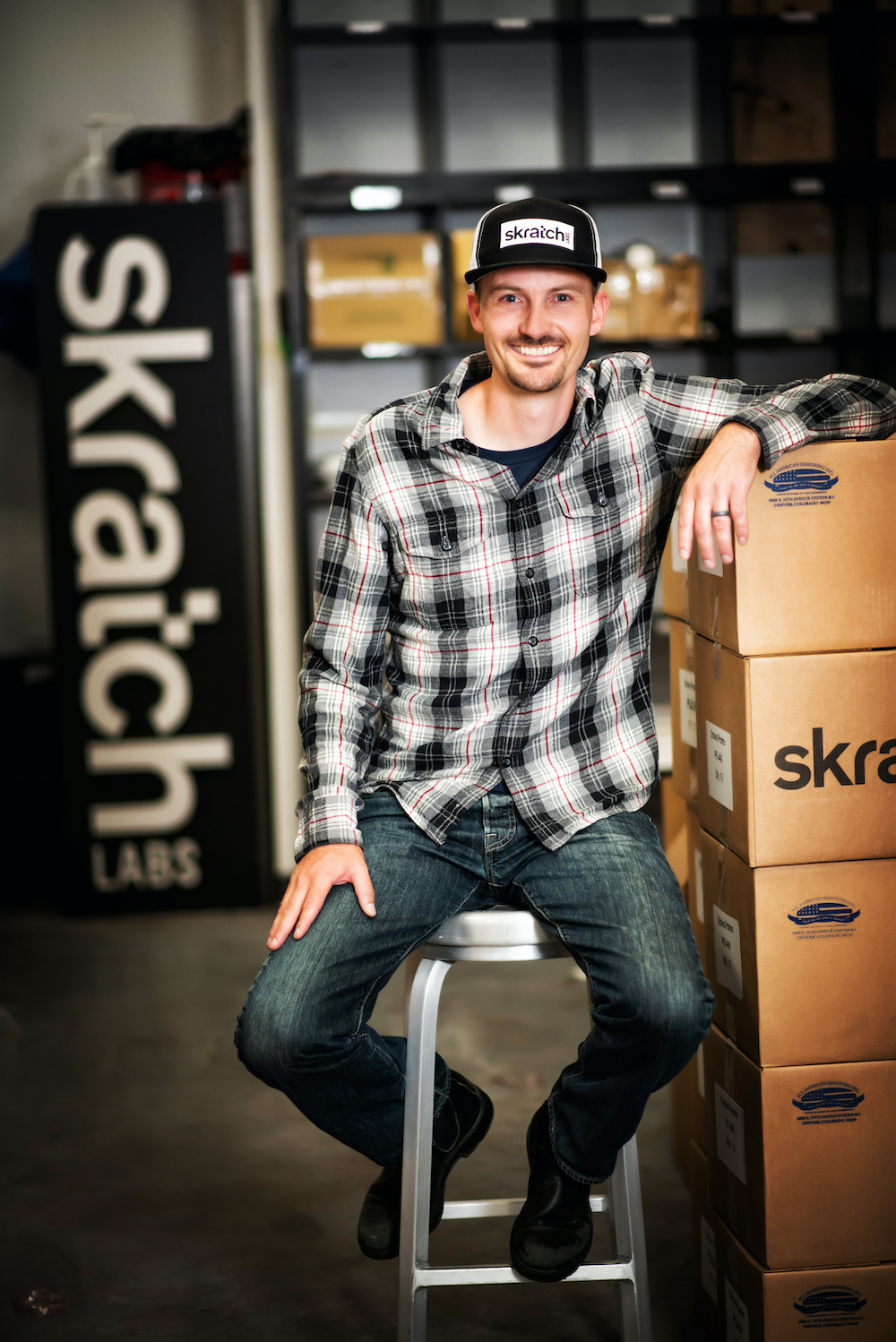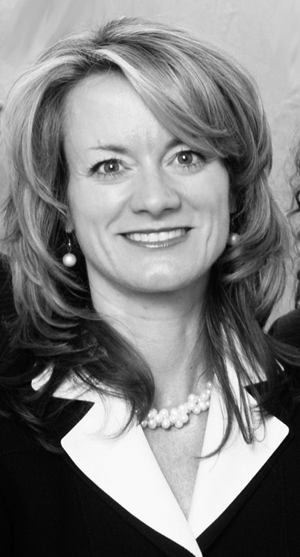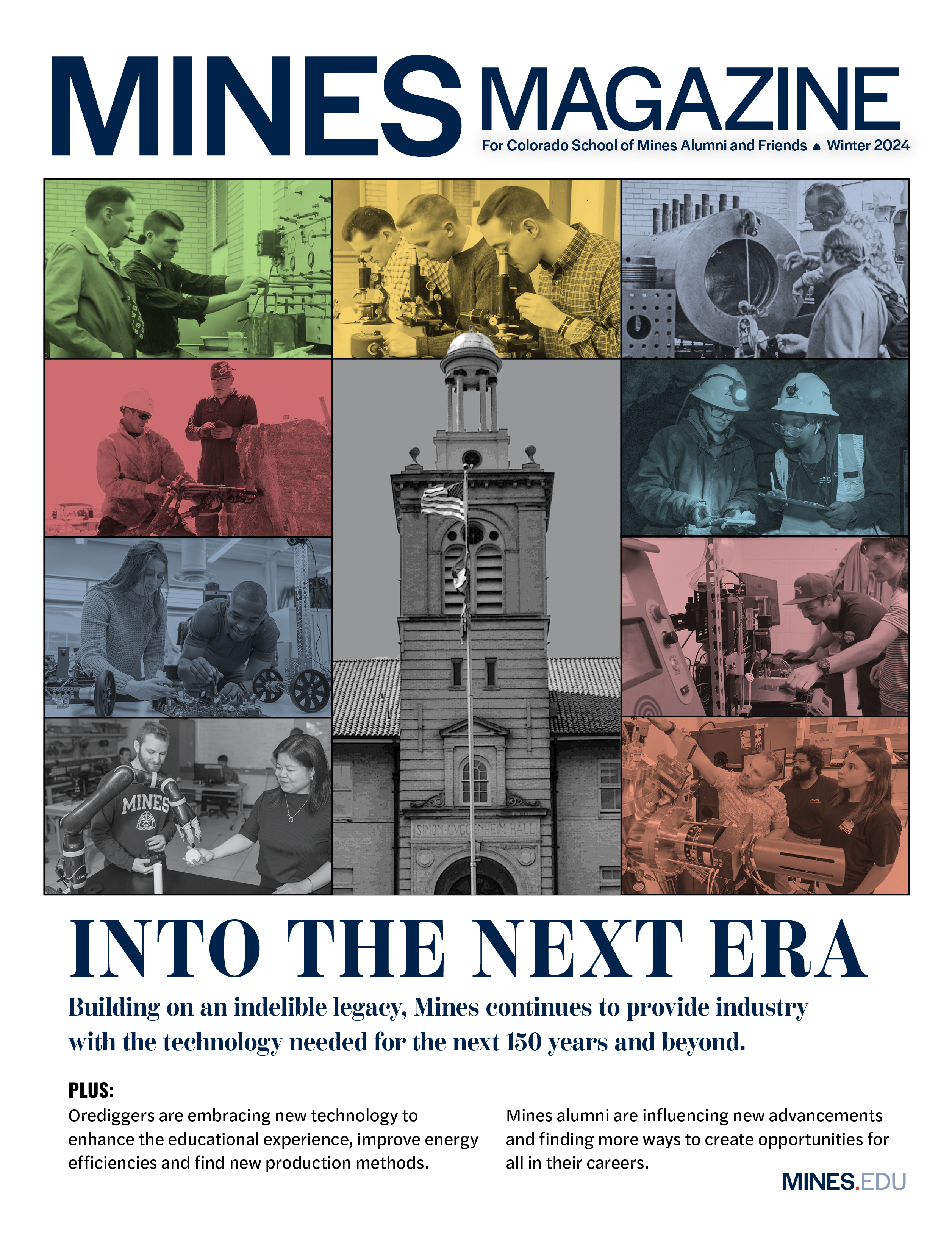Facing the crossroads

Ian MacGregor ’12 was torn. It was 2002, and he was between semesters in his first year at Mines and found himself presented with a once-in-a-lifetime opportunity to race for a national team as a professional cyclist. In the year prior, MacGregor had a great cycling season and was proving to be competitive in his age bracket. He felt the pull to give cycling a try—to see how far he could go—but that meant dropping out of Mines.
He went to his advisor, Professor John Berger, for advice, which was simple. “I hope I don’t see you in the spring semester,” MacGregor remembers Berger telling him. And he didn’t.
MacGregor took up professional cycling, thriving under the pressure—the moments in competition that are crunch time, when you have to put it all on the line. He couldn’t get enough of the feeling of flow when everything clicks. He lived all over the world, competing in some of the biggest races, and was the U.S. Under 23 National Road Champion two years in a row.
But fast forward nine years, and MacGregor again faced a crossroads. An injury had ended his cycling career, and he felt cheated watching others go on to the Olympics or win stages of the Tour de France—dreams he had once hoped were within reach. He was depressed
and felt just as lost as he had almost a decade prior.
So, again, he walked into Berger’s office for guidance. Again, Berger’s advice was simple. “I’ll see you in the spring semester,” is what MacGregor remembers him saying.
Although MacGregor wasn’t quite sure what he wanted to do at that point in his life, he realized getting an undergraduate degree is a good opportunity to stretch what you think you can do and give everything a try. He reenrolled at Mines to pursue a mechanical engineering degree, and even though his foray back into the rigor of Mines classes was difficult (he specifically remembers how hard Calc 3 was), he also knew that he was learning how to learn, and that was invaluable.
“I think my experience at Mines helped me to find myself and my areas of interest,” he said.
MacGregor tried to experience as much as he could. His classes at Mines helped him build a strong foundational knowledge base, and during his junior year, he started a business with a colleague that took off during his last year at Mines. They wanted to make people better, which for their business meant making products and recipes that cyclists and other athletes could use to compete at their highest level—something that felt right at home with MacGregor’s experiences as a cyclist. But that doesn’t mean the path was easy.
“We probably had five to six employees, and here I was, married, still struggling to pay the mortgage and run a business,” he said. “That was really hard.”
Fortunately, he kept at it, and his hard work paid off. The business grew into one of the leading sports nutrition companies—Skratch Labs. And although today MacGregor doesn’t rely as much on his technical engineering skills as the company’s CEO, he is grateful for the soft skills (or human skills, as he calls them) that he learned at Mines, such as teamwork and being uncomfortable but forging ahead anyway. He gained the confidence to launch into an industry and business he knew very little about, and he hopes that the emphasis
at Mines on entrepreneurial thinking will have the same effect on today’s students.
“What Mines has is a base of incredible faculty, a base of passionate students who want to learn, and by adding that creative element to the mix, I think we’ll find exciting and surprising emergence,” he said.
MacGregor believes that his educational and entrepreneurial journey will never end—he’s now pursuing an MBA—and he knows Mines was an incredibly important stop on that path. “I believed then that my injury was the worst thing that could happen, but it was quite possibly one of the best things because of the opportunity that it presented for me to attend Mines then,” he said. “When I look at formal education, that’s what I see in it—I don’t see a clear, straight line. I see it as a step along the way, to learn things you don’t know you’re going to learn, things that will open your mind and open your eyes.”



